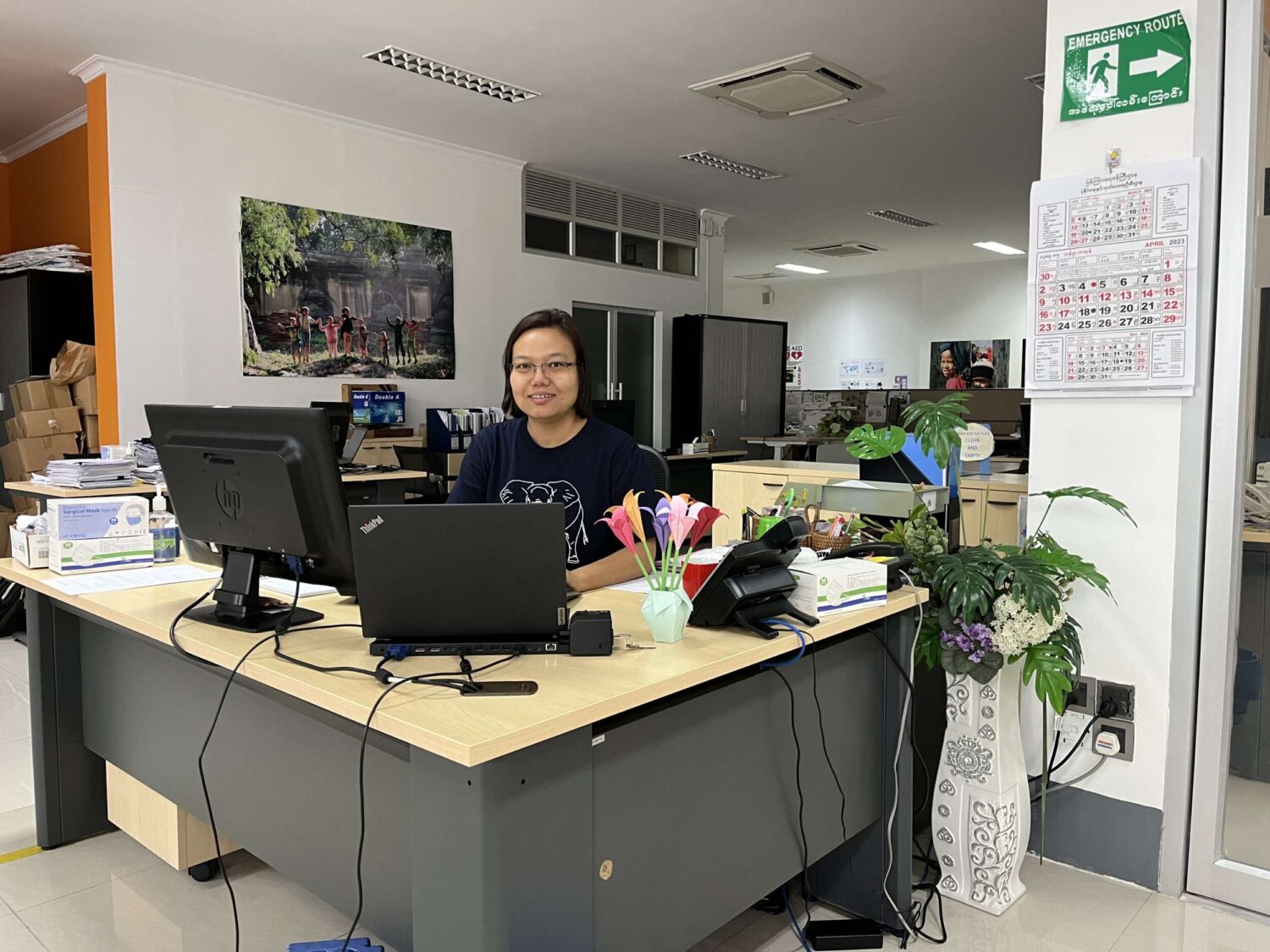Yes, this is what I want to do
24. Jul. 2023 / Learning & Studying
Interview with Friedensau graduate Phyu Phy Win from Myanmar by Thomas Spiegler
When you came to Friedensau, you already had a bachelor's degree in nursing.
How did you come to study International Social Sciences at Friedensau?
I had already been working as a nurse. Then came 2008, when Cyclone Nargis hit Myanmar, killing over 80,000 people. I decided to stop working in hospitals and started working in health care on-site instead. I was active as a nurse with Doctors Without Borders and later coordinated food supply programmes together with others. In the process, I realised that my Bachelor's degree was not enough to be able to work and take responsibility in this field permanently.
And so I looked around for Master's programmes. I could have studied in Bangkok. Through an acquaintance who had already studied in Friedensau, I had heard about the Master's programme in Friedensau. There was no full scholarship available for me here, but I was told that I could partly finance my studies with student jobs. I chose Friedensau because I was curious about Europe, about the different culture and the different way of studying. Also, the broad social science orientation in Friedensau appealed to me. Many friends of mine have stayed in the health sector, but I wanted to learn more about social sciences.
Did the expectations you had when you came to Friedensau come true during your studies?
Oh - my expectations were even exceeded! Actually, I only wanted to acquire a Master's degree. And that also worked out. But I worked on the side, for example in a retirement home. Even before the lectures, I spent two hours at the retirement home and looked after elderly people from 6 to 8 am. That wasn't always easy, but I learned a lot.
Dealing with the elderly is very different here than in my home country. I had the impression that they were treated with special respect. For example, they could choose from different dishes when they ate. And that aligns with what we learnt in our studies about looking at people's differences.
Before I came to Friedensau, my focus when working was always on what I had to do. After the Master's programme, I ask much more often why I am doing this or that. My way of thinking has changed. What I liked in Friedensau was the mix of different professors. In this way we got to experience different perspectives.
What came next for you after you successfully completed your studies?
I started as a project manager in an ADRA Nepal project. That was in 2016, and we worked there in the regions affected by the earthquake to secure people's livelihoods. A year later, I worked for the United Nations World Food Programme in Myanmar, where I specialised in cash transfers.
What exactly was your job there?
In a nutshell, it was about making sure that support funds reach their intended recipients. In my current project, for example, we give out grant money from the German Kreditanstalt für Wiederaufbau (Reconstruction Loan Corporation) to improve the provision of food and medical care for pregnant women and mothers with children under the age of two. I have to make sure that the money actually reaches the target group safely and efficiently within a certain time. Of course, I can't do that alone, but I have a team with which I coordinate everything step by step.
Which project are you working on right now?
I have been working for UNICEF in Sudan since last December. Unfortunately, due to the current crisis, we had to leave the country a few weeks ago, but I continue to work from Myanmar. We are coordinating the project I just mentioned, another one for schools and another one for school children directly.
Which challenges are you experiencing in your field of work?
For example, now in my work in Sudan: I don't know the background there as well as I did before when I worked in projects in my home country. I am not so familiar with the culture. I have to read a lot, but the people in Sudan are friendly and help me. Then there are sometimes language barriers in international cooperation because not everyone speaks English.
What makes your work meaningful to you, why is it worth the effort?
I like my work very much. When I started, I thought, "Yes, this is what I want to do". I like talking to people. After Cyclone Nargis in Myanmar, when we were travelling by boat in the affected villages in the Delta region, 10 to 12 hours a day, I didn't feel tired. I was highly motivated. Now I work most of the time in the office, but I see that my work really reaches those who need the help the most. That gives me drive. And I also like working here in the UNICEF team. I stand for the core values of the organisation: care, respect, trust, responsibility and sustainability. I see that in my work and that keeps me focused. There are many challenges in this work, but these core values are a good orientation for me.
The interview was conducted by Thomas Spiegler in May 2023.

Photo: FAU | private